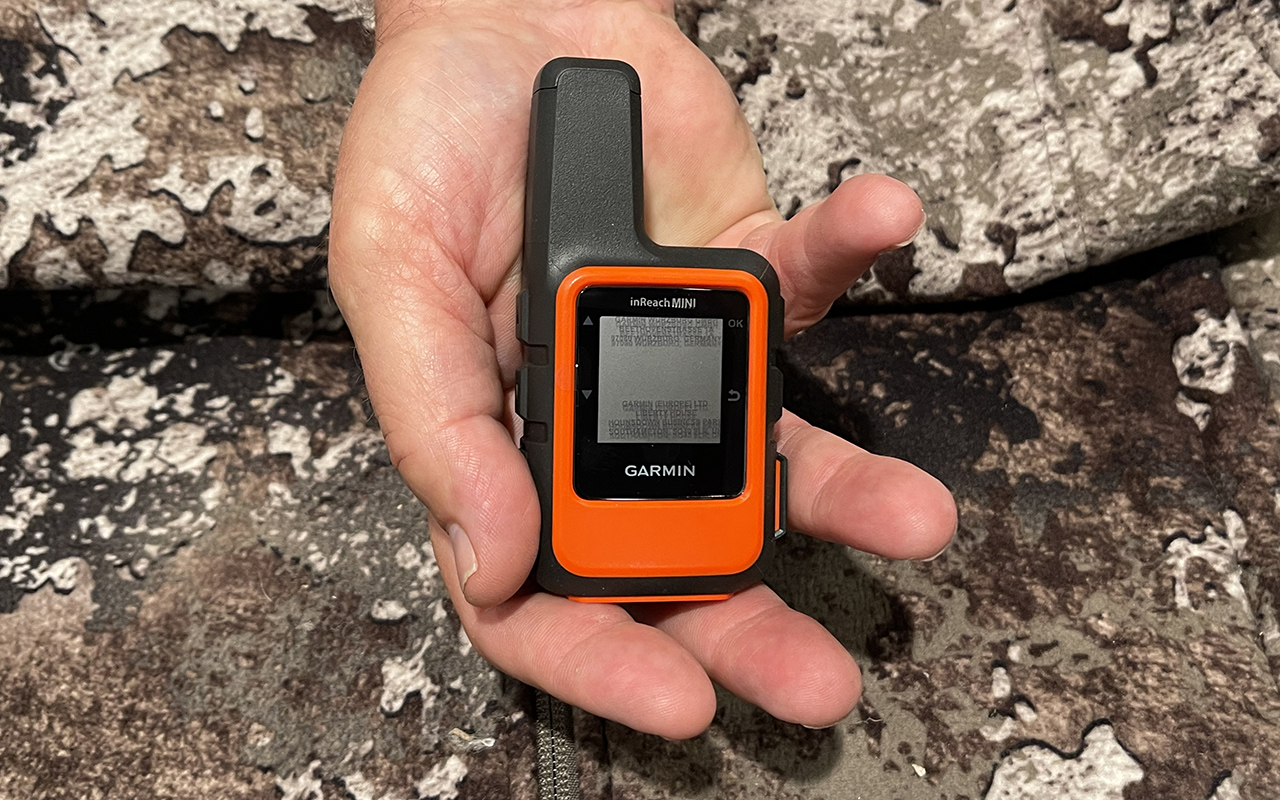
In the first part of this article, I discussed the technological advances and advantages from the compass to a Global Positioning System device. Across the state or across the world, a GPS will help a traveler get exactly where they want to go, and more importantly, back home. From the busiest interstate to the most desolate secondary road, directions are precise.
For an outdoorsman, destinations can be far more remote on secluded waterways, mountain hiking trails, deep forest with no trails or on an ATV or snowmobile, perhaps in the dark or during terrible weather. Unlike a cell phone that often loses service due to land contours and lack of towers, a satellite-connected GPS should never fail. As important as this is for everyday sports outings, it can be a lifeline when a medical emergency or severe accident occurs.
As I mentioned in the previous article, several GPS units now also feature a tracker and transponder, like the Garmin Montana 750i that I use, which offers two-way communication just in case. For outdoor adventurers who don’t feel the need for a full-feature GPS device, wish to spend quite a bit less money or want a smaller, lighter unit, either the inReach, inReach Mini or inReach mini 2 by the same maker should fill your needs.
The ability to communicate with friends and family and emergency personnel if needed eliminates a lot of worry when you’re off the grid. The inReach Minis measure only 2-by-4-by-1 inch and weigh 3.5 ounces, smaller than a deck of cards and way more useful in a pinch. There’s no reason not to carry one in your backpack, gear bag or, for better access, in a pocket of a garment you’re wearing. If a mishap occurs, the inReach will be on your person even if your gear is not. And if a medical situation or accident prevents you from actually using it, the signal can still be tracked to your location.
Among the many features of these small models are a rechargeable internal lithium ion battery with a life of 14 days; ability to send and receive text messages to SMS, email and other like devices; interactive SOS, and a Mapshare program compatible with tracking. There’s TracBack routing to find your way back to a start point if you become lost, a digital compass weather device, unlimited cloud storage and trip planning, and Bluetooth available yearly or by the month at a reasonable rate, But if it’s used only once to save an owner in trouble, how much is your life worth?

Although a flat tire on a boat trailer seems like a minor problem, what if the spare is also flat or you don’t have the right tools and are far out in the woods on a back road near dark? A GPS will save a lot of time and trouble and let folks at home know what’s happening. (Courtesy of Bill Graves)
With over six decades afield and afloat all over the U.S. and many foreign countries, I’ve encountered or been involved in a lot of mishaps — embedded fish hooks, knife cuts, ax gashes, falls and tumbles with broken bones, multiple flat tires and mechanical failures far from well-traveled roads, and even vehicle accidents with loss of life. I was once the first uninvolved person at a deadly hunting accident. You can only imagine what it would have meant for this new technology to have been available on those occasions.
Most folks are just too complacent; many sports enthusiasts, especially younger ones, feel invincible and think misfortune won’t cloud their outings. Let me offer a recent “for instance.”
A group of out-of-state snowmobilers came to Maine for a few days of great trail riding this past winter. By some sort of misfortune, one man got separated from his band of sledders on an evening ride. He tried to locate his friends and just got more disoriented, crossed paths with no other sledders and then ran out of gas. Lost and alone in the dark, deep in the cold winter woods, he made the decision to try and walk to safety. By the grace of God it was a cold night, but not subzero, and when the wardens finally located the man the next morning he was in critical shape, but still alive.
The lost traveler spent time in the hospital, endured several unpleasant procedures and eventually got home to family and friends, hopefully a bit more aware. For want of a small GPS, a true modern miracle, an outdoorsman nearly died. Some do and many more endure situations that might be avoided.
Think about it. Simply being able to email or text family or friends if help is required but not an emergency would be great, but if in dire straits a device could trigger an SOS to activate search and rescue. It’s even possible to have two-way communication with first responders to help them evaluate the situation and offer advice while in transit to your location.
If you need to be “inReach” once during your lifetime of outdoor activities, having a GPS might be the reason you end up having a “rest of your life.”







